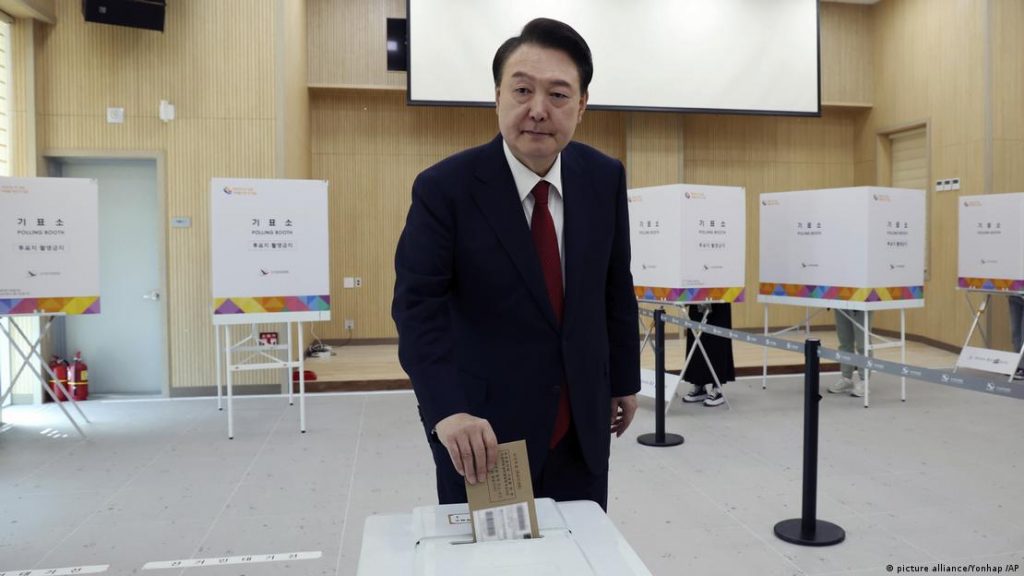The latest political situation in South Korea: The opposition Democratic Party of Korea landed a big victory on April 10, 2024 in the National Assembly elections. Together with its affiliated parties, it is estimated it will win a total 174 seats in the National Assembly. If combined with the 12 seats from the Rebuilding Korea Party founded by Cho Kuk (Cho Kuk is a former Minister of Justice who stepped down following prosecutions against his family led by then Prosecutor General Yoon Suk-yeol) it will have a total of 186 votes. This would be majority in the National Assembly; yet it has not reached the critical 200 votes out of its 300 seats. This means President Yoon can temporarily avoid an impeachment crisis, but it also means that the space for the Yoon administration to promote its agenda and policies has disappeared. On this front it would in effect be led, in the next three years, by the ruling Democratic Party of Korea.
President Yoon Suk-yeol’s foreign policy has long been criticized on home soil by hostile factions: it is seen by the opposition Democratic Party as being too pro-American and pro-Japanese, while the Democratic Party led by Lee Jae-myung is more pro-China and opposed to ceding grounds to Japan over the Dokdo/Takeshima issue. Given the latest election results, it can be said that the Yoon government will find it extremely hard to push its pre-existing diplomatic agenda going forward. On the one hand it will be more difficult for bills proposed by the executive branch to be passed in the National Assembly; on the other, the Yoon regime also cannot afford to keep vetoing bills tabled by the opposition party. The executive branch therefore needs to make compromises.
President Yoon, labelled a lame duck in the international press, will also lack the previous authority when implementing diplomatic measures in the remaining three years of his term. This may potentially become a factor for inaction at the diplomatic level on his part. For the promotion of “International Agreement to Prohibit the Eating of Dogs and Cats” this could present a challenge if not also an opportunity. This is because, if it is hard for Yoon to carry on the same path of being pro-American and pro-Japan on a geopolitical level, then “International Agreement” can at least provide South Korea with a channel for joint efforts with the United States on the level of soft diplomacy and an opportunity to achieve practical results with the United States. And since Lee Jae-myung has no objection to the ban on dog meat, this can also create opportunities locally for the two parties to collaborate. For President Yoon, successfully promoting “International Agreement to Prohibit the Eating of Dogs and Cats” with the United States may be seen as a global legacy of his tenure.

